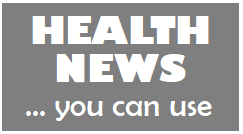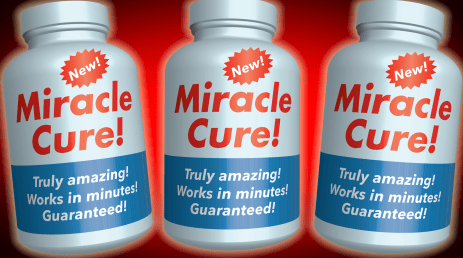Steer clear of buzzwords and miracle cures for better health; Most are snake oil by other names
By Jancee Dunn
Dicey health claims and wellness programs have been around for centuries, from the snake oil of the 1800s to the “master cleanse” of the early aughts.
Even as a health journalist, I have tried supplements that claimed to curb a raging sweet tooth (though I suspected, correctly, that they wouldn’t work). So I won’t judge if you’ve tried a spoonful of sea moss in hopes of speeding your metabolism. (That doesn’t work, either.)
“People don’t necessarily fall for false wellness claims because they’re gullible,” said Christy Harrison, a registered dietitian and host of the “Food Psych” podcast. Many of us, she explained, are looking to fill gaps in a health care system that can leave us feeling dismissed and unheard.
In her new book, “The Wellness Trap: Break Free From Diet Culture, Disinformation, and Dubious Diagnoses, and Find Your True Well-Being,” Harrison compiled nine years of research on the wellness industry, which embraces marketing and often eschews science. She highlighted a few strategies for assessing wellness claims.
Steer clear of buzzwords.
Social media has allowed harmful advice to proliferate, Harrison said. Claims can be hard to parse, but certain words are immediate red flags, she said:
 Miracle, breakthrough and secret. These hyperbolic terms should be greeted with skepticism, said Harrison, along with any “conspiracy language that this is hidden information that ‘they’ don’t want you to know.”
Miracle, breakthrough and secret. These hyperbolic terms should be greeted with skepticism, said Harrison, along with any “conspiracy language that this is hidden information that ‘they’ don’t want you to know.”
“If there was a ‘natural’ cure for cancer, why would reputable sources want to keep that information hidden?” she added.
Biohack. “The idea that we can hack ourselves like machines or computers,” is a myth, Harrison said. The true nature of health goes well beyond the physical and involves everything “from your mental health to your social life to your economic well-being,” she said.
Detox. The wellness industry, Harrison said, tends to view the liver and kidneys as filters clogged with “toxins” that need to be cleaned, “but the body is designed to detoxify itself,” she said.
Natural. Not only is this term vague, but natural remedies can have side effects that rival or even exceed those of standard medical care, Harrison said. “Wellness culture talks a lot about ‘Big Pharma,’ which has its own problems, to be sure,” she writes, “but ‘Big Supplement’ is even more problematic because it’s largely unregulated.”
You should also avoid claims that imply one food (or even nutrient) can drastically improve your well-being. “One thing, in the absence of eating literal poison, is not going to make or break your health, and is a drop in the bucket in the context of your overall eating pattern,” said Harrison.
S.I.F.T. through information.
When Harrison was researching her book, she came across the S.I.F.T. Method for assessing online information, developed by Michael Caulfield, a researcher at the University of Washington who studies online information literacy. The acronym stands for stop, investigate the source, find better coverage and trace the claims.
Before making any changes to your diet or lifestyle, pause for a moment, Harrison said. Then investigate the source by asking: “How does the person sharing the content stand to benefit? What are their credentials? What’s their agenda?” Harrison said.
Fact-check the claim by finding reputable sources like the Centers for Disease Control and Prevention, the Food and Drug Administration, the National Institutes of Health and other agencies and organizations that focus on public health, Harrison said. And, if possible, trace the claims back to a primary source like a study, she said. (A quick search reveals, for example, that “adrenal fatigue,” a popular malady in alternative medicine, is not an actual diagnosis.)
In some cases, Harrison said, there are no facts to be checked. The phrase “science hasn’t caught up,” for instance, “usually means there’s no research,” she explained.
Address concerns with a doctor.
Harrison acknowledges that many people seek wellness information online because they’ve had bad experiences with doctors, or may not have access to quality medical care.
“To the extent that people are able to go to a doctor they trust, I recommend asking your doctor about wellness claims,” she said. “If you would be spending time going down an internet rabbit hole about it, running it by your doctor first is a good strategy.”
___________________
Credit: New York Times Morning Letter





















